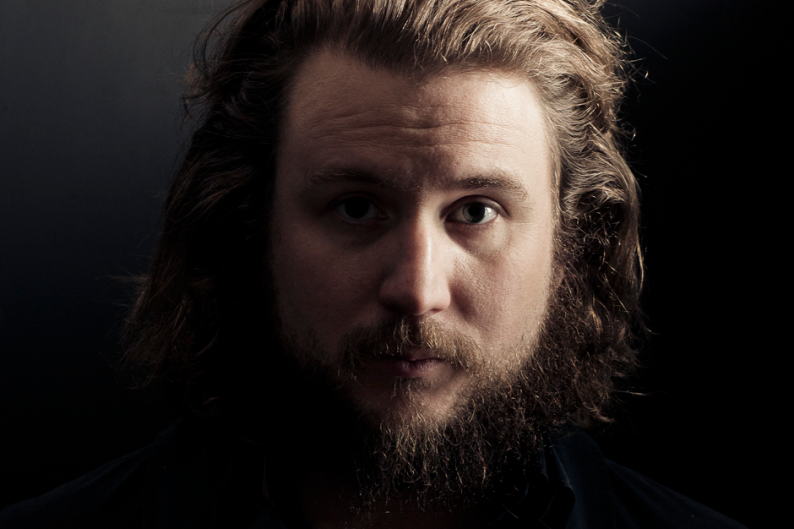I’ve decided to reinstate this blog. I know I’ve been terribly remiss about writing, but the problem is that I was treating it like a column, not like a blog. Every time I would sit down to write something, ostensibly for the blog, I’d think “That’s STUPID. No one CARES about why I like Foghat.” But then I realized, it IS a blog, not a column, and blogs are precisely the forum for the verbal/ pop cultural flotsam that is floating around my brain. Blogs are also there for the sentimental stuff you’re embarrassed to try to sell — like stuff about your grandparents and how they’re your heroes.
Anyway, on that note, in a Band of the Day feature the other day, I wrote about the NYC band Mommy and Daddy, “Maybe New York is a reincarnation of fin-de-sicle Germany. Post-catastrophe, there is an over abundance of burlesque, rowdy nightclub activities, and hedonistic dance music. Edmond Hallas and Vivian Sarratt, the duo that makes up the NYC-based duo Mommy and Daddy, say that their music switched from mope-core to booty-shaking in the aftermath of 9/11.”
Do you realize that I have no idea what I’m talking about? Everything I know about fin-de-sicle Germany I know from reading Christopher Isherwood’s Berlin Stories and seeing the musical Cabaret, which in fact is the musical incarnation of the Berlin Stories. I’ve seen art from the period at the Neue Gallery (Klimt, for example) — but I certainly was not even a gleam in the pre-sperm of my grandfather during the 1930s.

Also Read
Compact Discs: Sound of the Future
And speaking of my Grandfather (or Opa, the German word for grandfather, which is what I called him), he and my Oma (German for grandmother) were in Vienna in the 20s and 30s, and I realized I had never asked my 91 year-old Oma what it was like back then — what the music was like, whether they went out dancing, what they did for fun in that historically crazed period.
It’s not for lack of curiosity that I never asked. It’s more that it was a tacit family agreement that we were not to speak of the pre-Hitler days to my grandparents. They were lucky enough to come to the US in 1938, but they had made it abundantly clear to my mother when she was a child that the Holocaust was not to be discussed.
Now that my Opa has passed away and my Oma is certainly no spring chicken, it seems that the floodgates of speech have opened, and all the kids in my generation have begun to ask questions. Because of the popular notion that I have about Germany and by association, Austria in the ’20s and ’30s, I assumed that she and my grandfather spent all their time in jazz clubs and cabarets and danced and cavorted.
When I asked her what it was like back then, her first response was, “Oh! What fun we did have!” Her English, after more than 60 years in this country, is near perfect, though Oma always claims to be clumsy with her words. She has quite an interesting way of speaking, and the softest Viennese accent — sort of Germanic sounding but with a heavy dose of Austrian creaminess to soften the harsh edges.
She told me about the theater. “We used to go every week, sometimes more than once!” she told me, gesturing wildly. “We saw the Threepenny Opera with Lotte Lenya — she was such a big star and we got into the cheap seats so easily,” she said wistfully. “It’s not like today when everything is so expensive. We were just university students and we could go out all the time! Everything felt so…free, so modern.”
I asked her if she ever did go to Cabarets or went dancing, like Sally Bowles in Berlin Stories. “Oh no,” she said, “That was…déclassé. We were university students. We heard Classical music. Schubert. Mozart. Also we didn’t have everything they had in Germany. They had the Weimar Republic. But we had art, music.” My face fell a bit. I wanted to picture my spirited Oma, dancing on tables to Josephine Baker. Then I remembered that pop cultural representations are glossed over at best, and they never tell the whole story.
But real people do. “We were happy even though the whole time we knew we were just second class citizens.” My Oma said, matter-of-factly. “We just ignored it. When we saw them on the sidewalk, we just stepped down and walked around them.”
I’ve seen pictures of her from this time period, the late 20s and early 30s. My grandmother, with her olive skin and sensual lips, is smiling broadly, crookedly into the camera. She looks truly happy. I mull over the subtext and realize that she lived in a far more terrifying and awful place than we New Yorkers do today, and if she could still smile and enjoy her youth, we’d best be trying to do the same thing. Maybe I did know what I was talking about with Mommy and Daddy — in spirit, if not in actual fact.



